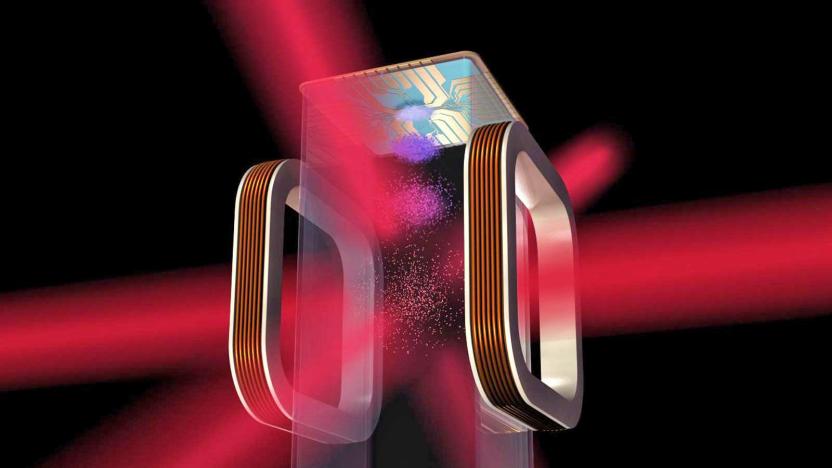TL19QNTM
Latest

‘Quantum microphone’ detects sound at the atomic level
Researchers at Stanford have developed a "quantum microphone" which can detect the smallest known units of sound -- packets of vibrational energy called phonons. The device could form the basis for even more efficient quantum computers.

Scientists unveil image of quantum entanglement for the first time ever
For the first time ever, physicists have captured an image of quantum entanglement. In a paper published in the journal of Scientific Advances, scientists from the University of Glasglow shared the first known image of a Bell entanglement. The photo depicts two photons interacting and sharing physical states for a brief instant -- an event that occurs regardless of the actual distance between the particles.

AI can simulate quantum systems without massive computing power
It's difficult to simulate quantum physics, as the computing demand grows exponentially the more complex the quantum system gets -- even a supercomputer might not be enough. AI might come to the rescue, though. Researchers have developed a computational method that uses neural networks to simulate quantum systems of "considerable" size, no matter what the geometry. To put it relatively simply, the team combines familiar methods of studying quantum systems (such as Monte Carlo random sampling) with a neural network that can simultaneously represent many quantum states.

Quantum 'compass' promises navigation without using GPS
GPS is vital to modern navigation, but it's extremely fragile. Never mind coverage -- if a satellite fails or there's a jamming attack, it quickly becomes useless. Scientists may have a much more robust answer, though. Scientists have demonstrated a "commercially viable" quantum accelerometer that could provide navigation without GPS or other satellite technology. The device uses lasers to cool atoms to extremely low temperatures, and then measures the quantum wave properties of those atoms as they respond to acceleration.

IBM finally proves that quantum systems are faster than classicals
In 1994, MIT professor of applied mathematics Peter Shor developed a groundbreaking quantum computing algorithm capable of factoring numbers (that is, finding the prime numbers for any integer N) using quantum computer technology. For the next decade, this algorithm provided a tantalizing glimpse at the potential prowess of quantum computing versus classical systems. However, researchers could never prove quantum would always be faster in this application or whether classical systems could overtake quantum if given a sufficiently robust algorithm of its own. That is, until now.

Diamond 'guitar' strings could lead to quantum computer memory
Quantum computers need memory to perform tasks like their conventional counterparts, but it's hard to create that memory when it only takes nearby vibrating atoms to lose all their data. Scientists may have a clever solution, though: tune diamond like a guitar string. They've crafted a quantum memory system where micron-wide diamond crystal strings house impurities that are better suited to data-storing electrons. If you subject the diamond to a voltage, you can stretch it and boost the frequencies the electrons are sensitive to, much like you would tighten a guitar string to change its pitch. It'll be harder to disturb the data, in other words.

NASA will create coldest place in the universe to study quantum physics
It's hard to study quantum behavior on Earth. You can amplify the effects of quantum mechanics by zapping groups of specific atoms (Bose-Einstein condensates) with lasers that drop their temperature to near absolute zero, but that only works for fractions of a second before gravity invariably takes over. NASA's solution? Create the coldest known place in the universe. The agency just launched the Cold Atom Lab, a box that takes advantage of microgravity aboard the International Space Station to keep condensates in that ideal state for much longer.



